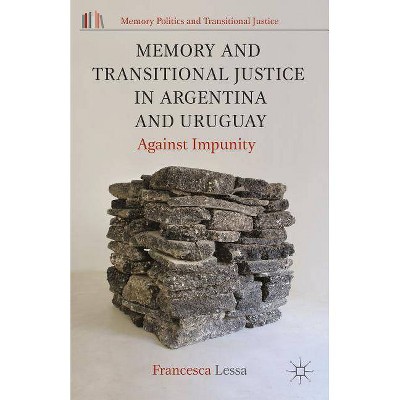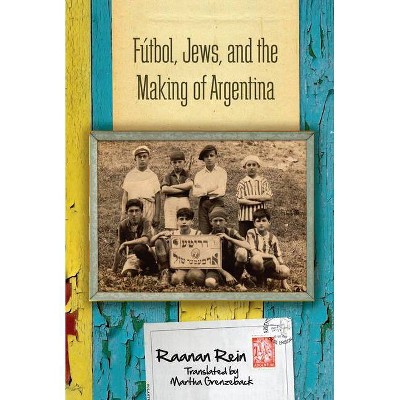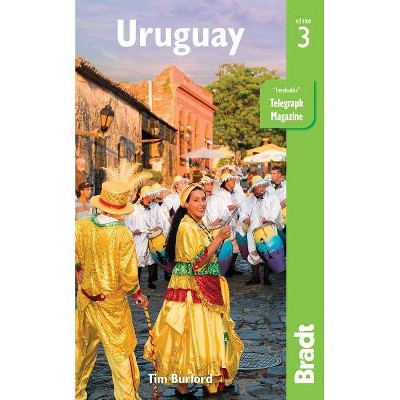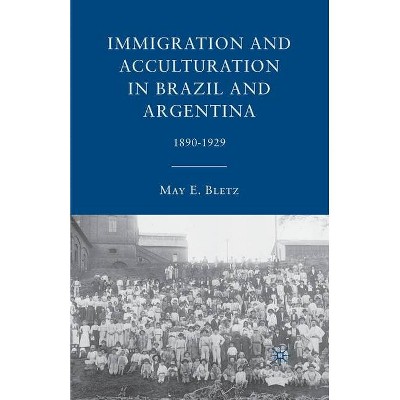The Post-Dictatorship Generation in Argentina, Chile, and Uruguay - by A Ros (Paperback)
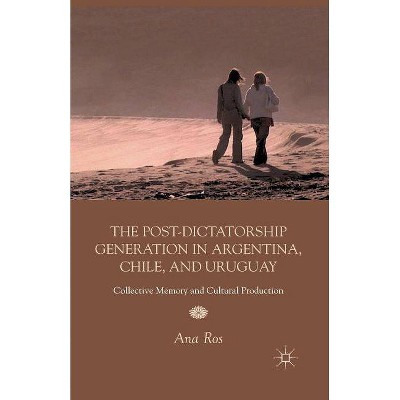
Similar Products
Products of same category from the store
AllProduct info
<p/><br></br><p><b> About the Book </b></p></br></br>"Southern Cone post-dictatorship generations reshape the collective memory of the dictatorial past through political activism and forms of artistic expression (cinema, literature, comics and photography). The author situates their work at the intersection of the individual and the collective: it is enabled by changes in the political context and can have a profound impact on the collective level. At the same time, these projects help artists and activists work through traumatic events individually. The first part of the book focuses on Argentina, where this generation's public interventions have broadened social involvement in remembering the past and encouraged learning from it for the sake of the present. In the second part, the author compares the exemplary achievements in Argentina with Chile and Uruguay, where political conditions are less conducive to genuine debate. "--<p/><br></br><p><b> Book Synopsis </b></p></br></br>The Post-Dictatorship Generation in Argentina, Chile, and Uruguay explores how young adults in Argentina, Chile, and Uruguay make sense of the 1970s socialist projects and the ensuing years of repression in their activism, film, and literature.<p/><br></br><p><b> Review Quotes </b></p></br></br><br><p>"The Post-Dictatorship Generation in Argentina, Chile, and Uruguay provides a refreshing, three-dimensional account of human rights debates in the Southern Cone, stressing the views of groups too young to have experienced state persecution directly, who must nonetheless grapple with a society forever altered by the period of tyranny. The blending of a sociological and a literary approach (including due attention to film and poetry) is unusual, difficult to bring off, and accomplished beautifully here."</p> <p>- Christopher Mitchell, New York University</p> <p>"Ana Ros offers an engaging and nuanced portrait of the post-dictatorship generation in Argentina, Chile, and Uruguay. Through her keen analyses and illuminating comparisons of diverse cultural productions, she shows how those who grew up amid state terror have challenged static, official narratives in the interest of constructing more just societies and layered understandings of the past."</p> <p>- Michael J. Lazzara, University of California, Davis</p> <p>"Focusing on the post-dictatorship generation's cultural production, Ros presents a novel perspective on the ongoing collective memory construction process. In this excellent study, the author thoroughly analyzes films, books, and artistic installations revealing how young people are reclaiming this history as their own and installing it in the public sphere with their distinctive approach, gaze, and voice. In doing so, they reaffirm the strong presence of this past in their present and challenge their parents' generation by triggering intergenerational dialogues that demystify heroes, question hierarchies, and demand explanations about memory monopolies, political activism, armed struggle, and the roles of average citizens."</p> <p>- Susana Kaiser, University of San Francisco, author of Postmemories of Terror: A New Generation Copes with the Legacy of the 'Dirty War'</p><br><p/><br></br><p><b> About the Author </b></p></br></br>Ana Ros is an assistant professor at SUNY-Binghamton, where she teaches Latin American Cinema and Literature. She studied Literature at the University of Uruguay and received her Ph.D. in Romance Languages from the University of Michigan. In her research, she critically examines contemporary Southern Cone cultural production in its socio-political context. Her interests include collective memory, intergenerational transmission, the post-dictatorship generation, exile and emigration, class relations, and the use of popular culture in literature. Her publications include: Young Argentine Filmmakers: Remembering the Past from a Present of Crisis in Latin American Studies: Critiques of Contemporary Cinema, Literatures, Politics and Revolution (Academica Press, 2011); Forgiveness and Reconciliation as Generational Questions, Argentina 1982-2011 in Dissidences: Hispanic Journal of Theory and Criticism (2011); Leaving and Letting Go as Possible Ways of Living Together in Jorge Gaggero s
Price History
Price Archive shows prices from various stores, lets you see history and find the cheapest. There is no actual sale on the website. For all support, inquiry and suggestion messagescommunication@pricearchive.us
